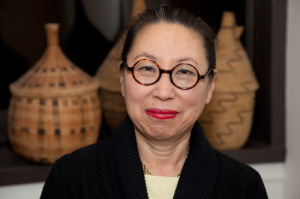Below is the most recent news from GPIA faculty regarding their research. Read more of the faculty’s work in the Working Papers series.
↑ Return to Graduate Program in International Affairs
Faculty Research
A New Publication by Professor McCandless
 Part time faculty, Dr. McCandless has a new publication out in the December/January Volume 4 Issue 1 of GREAT insights magazine. Her article is entitled: “Cautions against Conflation: Peacebuilding and Statebuilding as Distinct and Complementary Policy Agendas.” She critiques the tendency of conflating these agendas in international affairs, and makes the case for their distinctness to be nurtured in scholarship, policy and practice as a means of ensuring the important contributions of both are understood and realized.
Part time faculty, Dr. McCandless has a new publication out in the December/January Volume 4 Issue 1 of GREAT insights magazine. Her article is entitled: “Cautions against Conflation: Peacebuilding and Statebuilding as Distinct and Complementary Policy Agendas.” She critiques the tendency of conflating these agendas in international affairs, and makes the case for their distinctness to be nurtured in scholarship, policy and practice as a means of ensuring the important contributions of both are understood and realized.
Nina Khrushcheva and Peter Baker Discuss Russia and US Foreign Policy
Milano Professor Nina Khrushcheva and The New York Time’s White House correspondent Peter Baker sat down at The New School on earlier this week to discuss Russia and US foreign policy and relations. The event was recorded and you can view it in it’s entirety below.
Faculty Sakiko Fukuda-Parr on Human Rights and Global Inequality at the UN
 Professor Fukuda-Parr was one of the speakers at the Parliamentary Hearing at the United Nations – Ensuring a people-centered approach to the SDGs: a shared responsibility - organized by the Inter-Parliamentary Union and held in ECOSOC chambers on November 19-20.
Professor Fukuda-Parr was one of the speakers at the Parliamentary Hearing at the United Nations – Ensuring a people-centered approach to the SDGs: a shared responsibility - organized by the Inter-Parliamentary Union and held in ECOSOC chambers on November 19-20.
Drawing from recent research on global goals, she urged Parliamentarians to support the goal to reduce inequality as a top international priority. Removing inequality and discrimination is not only a valuable end in itself and a human right but can help promote economic growth and human development.
Professor Sakiko Fukuda-Parr also recently gave the annual Boving lecture at the University of Saskatchewan, Canada, established to promote debate on urgent global challenges of poverty, inequality and development. The topic of the lecture was Fulfilling Social and Economic Rights. Drawing on her forthcoming book by the same title, she asked ‘what would we learn if we turned the question around, and instead of measuring the progress of nations by the production of commodities but by how well they are using those resources to improve the human condition’. Analysis using a new measurement tool, the SERF index, shows progress in state performance over the last decades but serious underperformance. The failure to realize social and economic rights is not due to lack of income but to inadequate social institutions.
–



